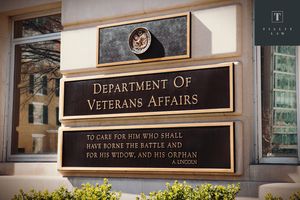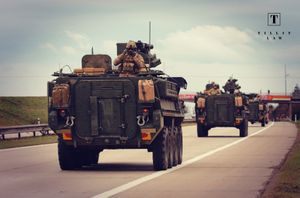During the solicitation phase of a procurement, the government may disseminate information regarding the solicitation to prospective offerors. If the information is in writing, signed by the contracting officer, and provided to all prospective offerors, it contains the essential elements of a solicitation amendment and may operate as such. Bid protest adjudicative forums have previously held that questions and answers (Q&As) published with amendments to a solicitation are considered part of the amended solicitation’s requirements. Thus, if the government’s answers clarify or even modify existing solicitation requirements, prospective offerors must submit proposals that conform to those updated requirements. Furthermore, whether an answer the government provides imposes a particular requirement is ultimately a matter of solicitation interpretation. To resolve matters of interpretation in bid protests, adjudicative forums such as the Government Accountability Office (GAO) look to determine the plain meaning of the solicitation language. Similarly, the principle of whole-text interpretation is also employed, and the interpretation that gives meaning to all the solicitation’s requirements without creating conflicts or rendering parts of the solicitation superfluous prevails as reasonable.
In B-422938; B-422938.2, a bid protest decision issued on December 12, 2024, the GAO sustained a post-award bid protest in finding that the government’s answer to a contractor question amounted to a mandatory solicitation requirement that had to be met at the time of proposal submission, and which the awardee’s proposal had failed to satisfy. The fair opportunity proposal request (FOPR) underlying the protest was issued by the U.S. Air Force to small business holders of the National Aeronautics and Space Administration’s (NASA) Solution for Enterprise-Wide Procurement (SEWP) indefinite delivery, indefinite quantity (IDIQ) contract. The May 2024 FOPR contemplated the award of a single fixed-price order on a best-value basis for portable satellite terminals along with related equipment and services. The technical factor, which was significantly more important than price, included numerous mandatory “threshold” requirements in a technical requirements document (TRD). The successful offeror had to deliver the first terminal for testing six months after receiving the award. The solicitation required the terminals to possess the capability of providing auto-tracking/auto-acquire functionality. Additionally, the proposed terminal assembly had to be certified by the Army Forces Strategic Command (AFSC) as having the capability to allow transmission over Wideband Global Satellite Communications (WGS). Notably, in responding to a question posed by an offeror during the Q&A period, the government provided that the terminal had to be WGS-certified at the time of proposal submission.
The protestor’s proposed terminal assembly had the auto-tracking capability and was WGS-certified at the time of proposal submission with a total evaluated price (TEP) of ~$300M. Meanwhile, the awardee proposed a WGS-certified terminal at the time of proposal submission with a TEP of ~$180M. However, the awardee’s terminal required modifications to provide the necessary auto-tracking capability. In the post-award protest that followed, the protestor argued that the awardee’s terminal assembly was ineligible for the award because it failed to meet the solicitation’s material requirements. Firstly, the awardee’s WGS-certified terminal lacked the auto-tracking capability at the time of proposal submission. Secondly, even though the awardee had proposed to modify its base terminal to provide the auto-tracking capability eventually, such modifications would require the enhanced terminal assembly to be recertified by AFSC for WGS capabilities. Notably, the WGS certification process in question only certifies a terminal assembly system as a whole and a sufficiently modified assembly system requires either a total recertification or a “delta certification” for the changed components. Therefore, the protestor argued that the awardee’s proposed modified terminal assembly solution was not WGS-certified at the time of proposal submission, which was in violation of a mandatory solicitation requirement as confirmed by the government’s answer to the pertinent question during the Q&A period.
In response, the Air Force advanced the argument that the solicitation itself was, in fact, silent on when a terminal had to be WGS-certified. Furthermore, the Air Force argued that the government’s answer during the Q&A period requiring the terminal to be WGS-certified at the time of proposal submission had no impact on the solicitation’s WGS certification requirements. In the alternative, the Air Force argued that even if the pertinent answer during the Q&A period modified the solicitation to require a WGS certification at the time of proposal submission – the awardee’s proposed solution met this requirement because it was based on a terminal that had been WGS certified at the time of proposal submission. Finally, the Air Force presented a second alternative argument that the awardee’s proposed modification to add the auto-tracking capabilities to the base terminal did not affect its WGS certification status. To support this argument, the Air Force pointed to official WGS certification process documentation which provided that changing the terminal tracking from manual to automatic was a modification that would be eligible for a faster delta recertification from the terminal’s existing certification rather than requiring a complete recertification for the entire assembly.
The GAO agreed with the protestor and sustained the protest, finding that the Air Force’s interpretation of the solicitation was unreasonable. The decision provided that while the FOPR did not initially inform the offerors of the specific point of time when their proposed terminal assembly had to be WGS-certified, the pertinent answer during the Q&A period advised offerors that the terminal must be WGS-certified at the time of proposal submission. The GAO determined that the relevant question and the Air Force’s answer to it were as much a part of the solicitation’s terms as any other portion of the solicitation. Additionally, the Air Force’s answer to the pertinent question was not inconsistent with any other solicitation terms. Thus, its inclusion as an additional solicitation term satisfied the principle of whole-text interpretation. Meanwhile, the government’s interpretation that the pertinent question and its answer did not alter the solicitation’s requirements was contrary to plain meaning and rendered the government’s answer superfluous.
The GAO was also unpersuaded by the argument that the Air Force’s answer to the pertinent question conveyed to the offerors that only the base terminal and not the entire terminal assembly had to be WGS-certified at the time of proposal submission. Firstly, the pertinent question referred to a paragraph of the FOPR that specifically required that each terminal assembly be WGS-certified in its entirety. Secondly, the official WGS certification procedure documentation indicated that the certification process applied to the terminal assembly as a whole. Therefore, the entire terminal assembly had to be WGS-certified at the time of proposal submission. Finally, the GAO also rejected the argument that modifying the terminal to provide auto-tracking functionality did not affect the terminal’s WGS certification status. The GAO determined that even if the awardee’s terminal only required the faster delta recertification as opposed to complete recertification – that actually demonstrated that the terminal had been sufficiently modified to such an extent that it required at least some form of recertification. This delta recertification requirement also indicated to the GAO that the awardee’s proposed terminal assembly was not WGS-certified at the time of proposal submission. Consequently, the GAO sustained the protest and recommended that the Air Force either reevaluate the proposals and issue the award to an offeror that proposed a terminal assembly that met the solicitation requirements or amend the solicitation to reflect the government’s actual needs.
The Q&A process plays a vital role during the solicitation phase of federal procurements. To effectively participate in the Q&A process, contractors should not only ask relevant questions impacting their own proposals but also seek clarifications on seemingly innocuous solicitation requirements that may affect their competitors’ proposals and potential solutions. In either case, contractors should be mindful that the text of the offerors’ questions and the government’s answers become part of the solicitation and may amend its requirements. Thus, depending on the context of the solicitation, interested offerors should view Q&As as not merely clarifications but as amendments to the solicitation, capable of establishing brand-new requirements. Any such requirements included in the Q&As that are seemingly inconsistent with other parts of the solicitation or are otherwise improper should be flagged and timely raised with the procuring agency. Furthermore, since such improprieties are technically not a part of the initial solicitation but are later incorporated in it by amendment, such solicitation improprieties must be protested at the GAO or the Court of Federal Claims (COFC) before the submission date of the proposals. Ultimately, through the effective use of Q&As and by understanding their overall impact on solicitation requirements, contractors can become better-informed participants in the federal procurement process while improving their chances of obtaining positive business outcomes in the long run.
This Bid Protests Insight provides a general summary of the applicable law in the practice area and does not constitute legal advice. Contractors wishing to learn more are encouraged to consult the TILLIT LAW PLLC Client Portal or Contact Us to determine how the law would apply in a specific situation.





